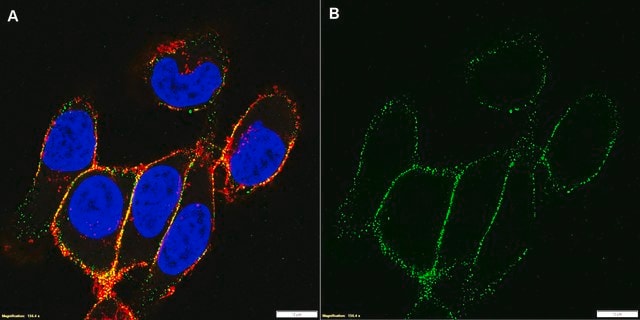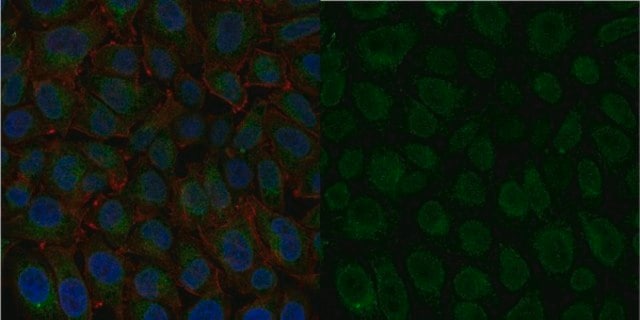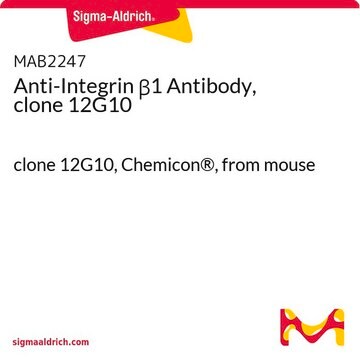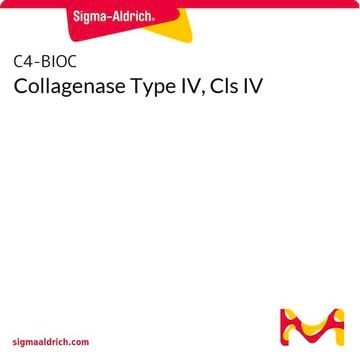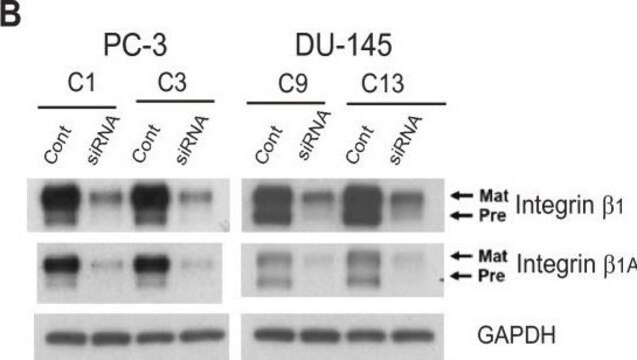MAB1987Z
Anti-Integrin β1 Antibody, clone P4C10, azide free
clone P4C10, Chemicon®, from mouse
Sinónimos:
CD29, MAB1987
About This Item
Productos recomendados
biological source
mouse
Quality Level
antibody form
purified immunoglobulin
antibody product type
primary antibodies
clone
P4C10, monoclonal
species reactivity
human
manufacturer/tradename
Chemicon®
technique(s)
ELISA: suitable
immunocytochemistry: suitable
immunoprecipitation (IP): suitable
western blot: suitable
isotype
IgG2a
NCBI accession no.
UniProt accession no.
shipped in
wet ice
target post-translational modification
unmodified
Gene Information
human ... ITGB1(3688)
General description
Specificity
Application
Immunoflourescence
Immunoblotting
Immunoprecipitation
ELISA
Immunocytochemistry Analysis: A 1:100 dilution from a representative lot detected Integrin β1 in HeLa cells.
Optimal working dilutions must be determined by end user.
Cell Structure
Integrins
Target description
Linkage
Physical form
Storage and Stability
Analysis Note
Human Tonsil, human skin, human lung, liver, and skeletal muscle tissues
Other Notes
Legal Information
Disclaimer
¿No encuentra el producto adecuado?
Pruebe nuestro Herramienta de selección de productos.
Optional
Storage Class
12 - Non Combustible Liquids
wgk_germany
WGK 2
flash_point_f
Not applicable
flash_point_c
Not applicable
Certificados de análisis (COA)
Busque Certificados de análisis (COA) introduciendo el número de lote del producto. Los números de lote se encuentran en la etiqueta del producto después de las palabras «Lot» o «Batch»
¿Ya tiene este producto?
Encuentre la documentación para los productos que ha comprado recientemente en la Biblioteca de documentos.
Nuestro equipo de científicos tiene experiencia en todas las áreas de investigación: Ciencias de la vida, Ciencia de los materiales, Síntesis química, Cromatografía, Analítica y muchas otras.
Póngase en contacto con el Servicio técnico